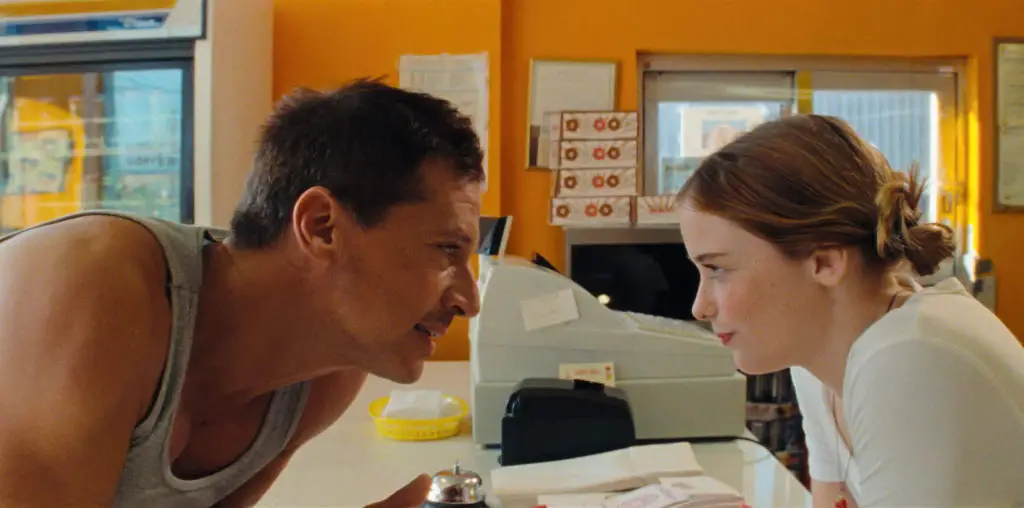
Yep. 5 stars. NOT kidding. If you read this e-rag regularly you know neither Gore nor I give those out like Halloween Candy. What could possibly warrant this reaction? In this case, it’s a film to remind us of what we’re missing and what we shouldn’t forget.
Filmmaker Sergio Leone has been deeply missed since his death in 1989. He had a long career, but only produced only a handful of films, mostly Westerns. “Spaghetti Westerns.” The only film for which he bears solo directing credit since “Once Upon a Time in the West” in 1969 is “Once Upon a Time in America”, 15 years later. A grand gangster saga, it still bears the hallmarks of his other works. These are epic stories of lonely, struggling men. They could be anyone if not for the ugly, violent worlds they inhabit at the crossroads of history. They are denied the white hats, the songs, and the virginal school marms. Leone gives us not heroes but complex, damaged psyches caught between their instincts and their souls. Any action, no matter how small, can swell to mythic proportions. In these worlds, any action can cost them everything. No one there ever sets out to do good. Sometimes it just happens. Character and determination (and maybe a fast draw) will determine survival.
Leone’s films became fables, alternately debunking, discarding, and distilling the mythos of the American west. When I think of him, I miss him. I think of this because another filmmaker, another Italian, has successfully conveyed the same sense of scale and power. Grand in scope yet completely personal, I once again felt a story wrap envelop and lose me in its world. This time, it was courtesy of the auteur behind “Cinema Paradiso”, Guiseppe Tornatore. There is still a big difference. Leone’s icons expressed their pain with bullets. In “The Legend of 1900”, Tornatore’s lost souls express themselves through music.
Max (Pruitt Taylor Vince) is a Jazz musician bottoming out when a chance encounter sparks the memory of his most cherished friend. We then see the great cruise ship, The Virginian, loaded with immigrants, approach America for the first time this century in January 1900. After docking, a crewman discovers an infant, born on the voyage, abandoned in a lemon crate on top of the grand piano in the main ballroom. The crew adopts the child and names him ‘1900’ (Tim Roth), for the year of his birth. No country to call home, the child grows to adulthood but never leaves the ship. The boy displays an early genius on the piano, so great that his talent (provided by the legendary Ennio Morricone) competes with his origins for a place in the minds of the public. He dreams of the lands he views from the decks, but is content to let the world come to him, 2000 people at a time.
Remember music? This has been one of the worst years ever for popular music. With the year 2000 looming ahead, nearly every filmmaker on the planet is putting out a final celluloid statement of the millenium, but all I hear on the radio are a bunch of white, frat-boy poseurs and some Mousketeers. We need to be occasionally reminded that music is more than a bunch of noise to sell khakis, its about EXPRESSION. Pain, joy, whatever; music can often reveal what we can not articulate any other way. Music can provide connection, or intimacy unattainable by other means.
1900 never documents his compositions. His piano is his voice. When he plays, the music is a statement of his emotions or his dreams. The piano keys will illustrate the images he sees on both sides of his eyes; vividly, but incomplete. He sees the meaning derived from the context of its genesis more than the simple placement of notes. The sounds are a reflection of moments; his moments. A piece of music can express strong imagery, but how much can you really understand when you cannot witness the moment of creation?
“The Legend of 1900” also reminds us that we are defined as much by what we are not, or can not do, as by our abilities and attributes. Other may think it “best” that 1900 leave the ship and explore the world, but is it? Is there really more value for our culture in his experience of the city than how he imagines it? Would the assimilation only strip him of what is unique? Would Stephen Hawking accomplish so much if he had the physical use of most of his body? Maybe the only way man can grow is to be forced or to choose to take as many separate paths as possible.
The movie’s not perfect. As Tornatore’s first English-language film, the dialogue usually flows well but doesn’t seem too connected to the era depicted. The comedy may appear overly broad, but never glaringly so.
The film succeeds on the big stuff: The creation of an engrossing world, a compelling story, and it makes you think. It reminds you how fantastic Tim Roth truly is and how a great film is supposed to feel when you see it for the first time. I think this is how I was supposed to feel about “Titanic”, instead of bored and insulted. I guess the magic just needs to go into the story instead of really big sets.
